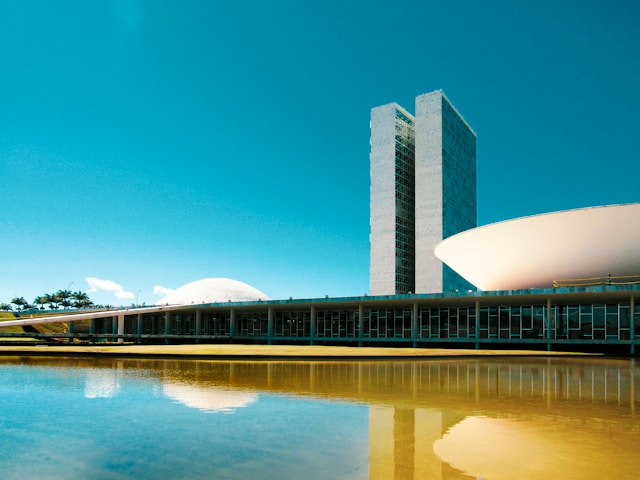

Brazil’s government submits proposal for tax reform regulation to Congress
House of Representatives expected to analyze proposal before the congressional recess begins on July 17
Subjects
On April 24, 2024, Brazil’s Finance Minister, Fernando Haddad, submitted the government’s first proposal to regulate the country’s tax reform to House of Representatives Leader Arthur Lira and Senate Leader Rodrigo Pacheco. The reform was enacted by Congress via Constitutional Amendment (EC) No. 132 in late 2023.
The government’s proposal is divided into three books, comprised of 500 articles that span over 360 pages. The first addresses general rules for the state/municipal goods and services tax (IBS) and federal contribution tax on goods and services (CBS), and the second concerns the new excise tax (IS). Meanwhile, the third book covers regulations on the Manaus Free-Trade Zone (ZFM), free trade areas, and regulations for assessing (on a five-year basis) various other aspects outside the scope of general taxation rules.
The proposal does not set specific tax rates for the new system. However, the Ministry of Finance estimates an average rate of 26.5% for the new taxes, which could rise to 27.3%. This issue will be determined later.
Issues related to the existing state sales tax (ICMS), contribution taxes that finance social security (PIS and COFINS), and the service tax (ISS) continue to be a source of controversy. Challenges include transactions involving consumer goods, uncertainty about substituting existing taxes, credits in transactions with reduced tax burdens, and implementing a tax collection system based on destination.
Key aspects that the proposal regulates include:
- Rules for specific regimes and rate reductions for goods and services as established by EC No. 132/2023;
- General rules defining taxation at destination, non-cumulative taxation, and rules for the transition period;
- A list of goods subject to the excise tax, which targets ‘products harmful to human health and the environment’ including automobiles, boats, aircraft, tobacco products, alcoholic beverages, sugary drinks, and mineral extraction (iron, oil, and natural gas);
- The definition of a list containing 15 tax-exempt basic food items;
- Rules for cashback programs, which provide that a portion of the taxes paid will be reimbursed to individuals from low-income households;
- Tax exemptions for exports, the public sector (reciprocal tax immunity), religious entities, political parties, labor unions, non-profit educational and social assistance institutions, transactions involving books, newspapers, periodicals (and the paper they are printed on), music phonograms and video phonograms, as well as radio broadcasting and free-to-air sound and image broadcasting services.
The proposal does not contain general rules for exempting capital goods; however, it does address the Tax Regime for Modernization and Expansion Incentives of Port Structures (REPORTO) and the Special Incentive Regime for Infrastructure Development (REIDI) in this context.
The government’s proposal will first be reviewed by the House of Representatives, which is expected to occur before the mid-year congressional recess begins on July 17. The House still needs to designate a rapporteur for the proposal.
Furthermore, another bill concerning the steering committee for the new taxes is expected to be forwarded for assessment after the Labor Day public holiday (May 1).
For further information, please contact Mattos Filho’s Tax and Government Relations practice areas.

